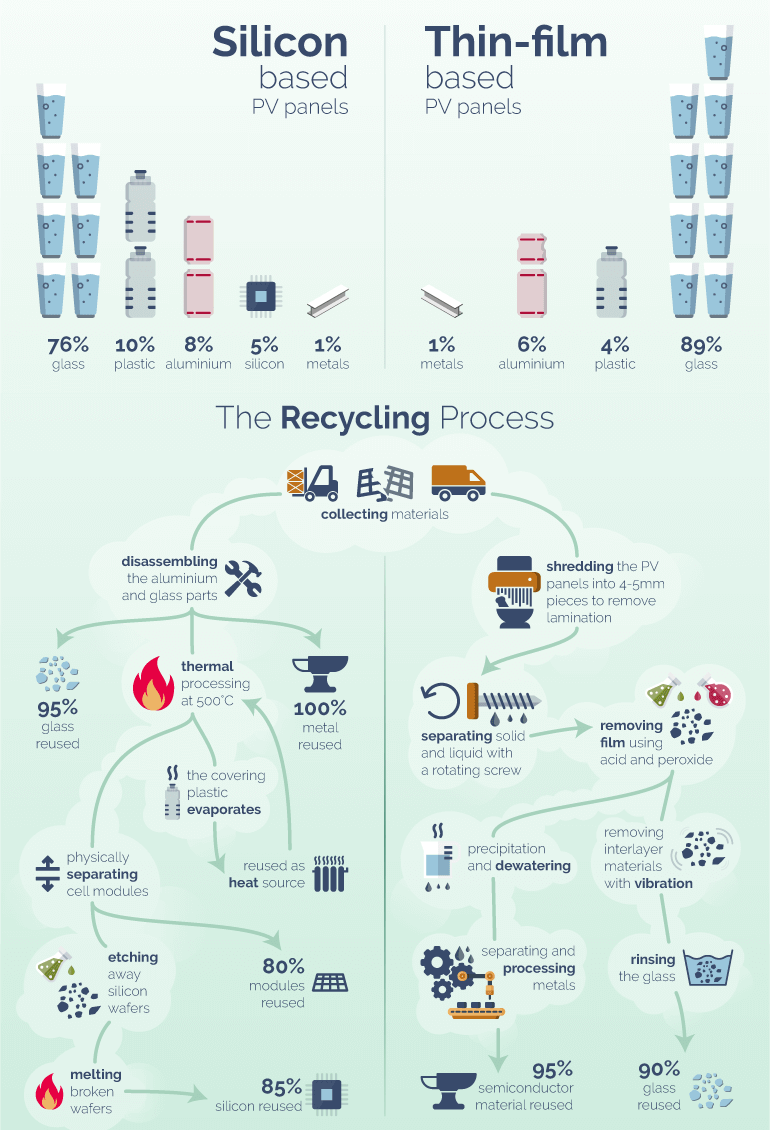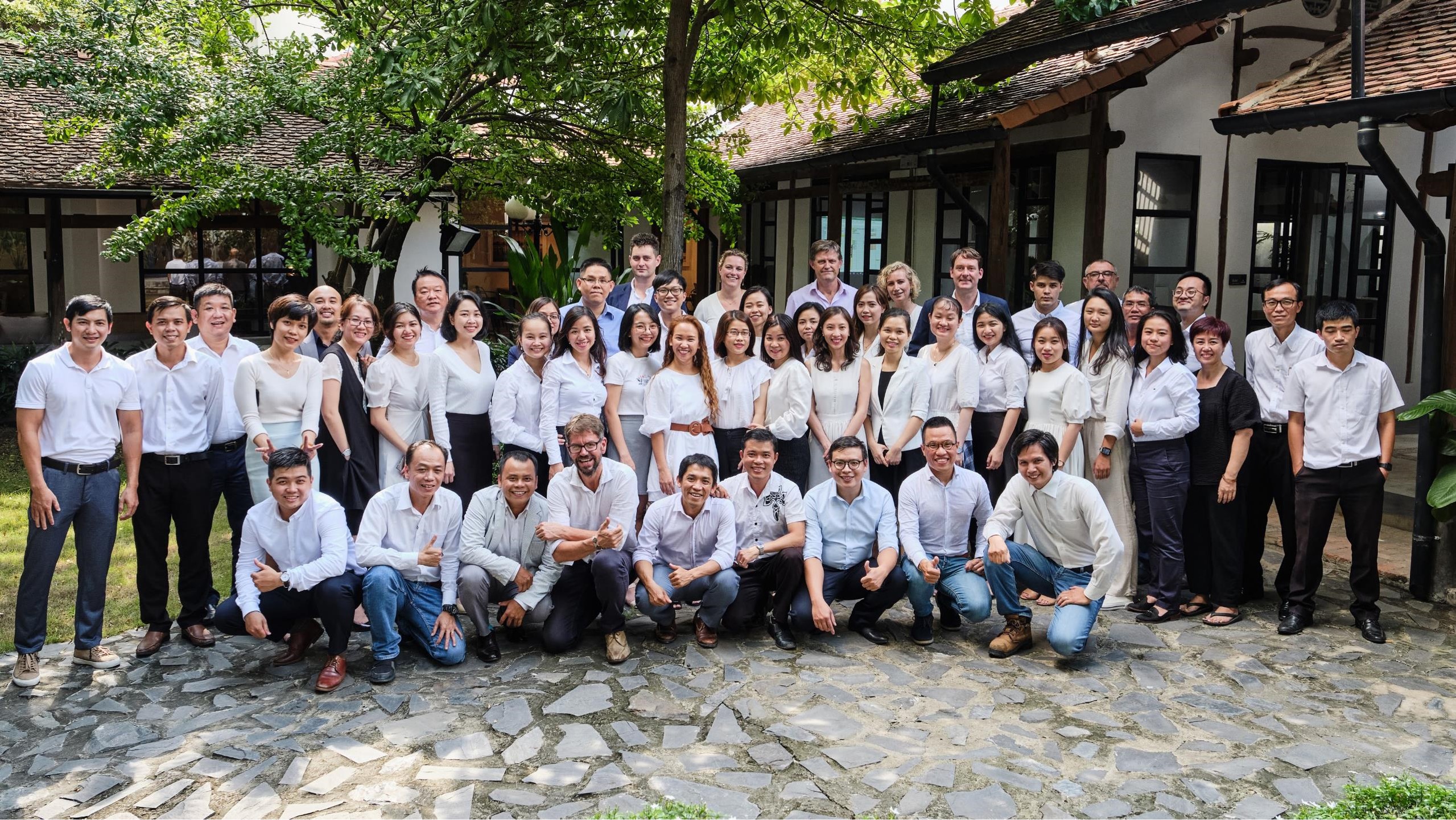By Clothilde Deneve, Sales Director, Shire Oak International –
Over the last few years, solar energy has been on an exponential rise, with an average of 29% year on year growth installation since 2016. The worldwide installed capacity in 2019 reached a total of 627GWp, and is expected to reach 950GWp by the end of 2021. This trend is not surprising, as everywhere around the globe efforts are rising to limit global warming. In fact, it is not just solar energy – all other forms of renewable energy are slowly overshadowing the once-leading source of energy: coal.
However, with the solar energy growing trend comes another challenge: What do we do with panels after 30 years once they have reached the end of their lifespan?
The Disposal Waste
The disposal waste of solar panels may become very problematic in the next decades, if authorities and industry stakeholders don’t tackle the issue: the solar waste projected by 2050 could reach almost 80 million tons.
The biggest worry with this is the disposal of heavy metals present in solar panels: lead and cadmium. If these metals leach out of the solar cells, they can get into groundwater, affecting fauna and flora around them. These metals also have a record for detrimental effects on human health. Lead is commonly known to impair brain development in children, and cadmium is a carcinogen.
Recycling Efficiency
Panels also require rare metals that are extracted by mining, which is resources heavy and can be detrimental to the environment. Recycling and reusing these rare metals make a lot of sense to ensure the sustainability of solar energy.
The good news is technologies to recycle these panels and safely dispose the waste exist and are getting really efficient.
There are two main types of solar panels, made mainly of glass, plastic, aluminum and metals (plus silicon for the silicon-based panels), that require different recycling approaches, as shown in the image below.

Image by New Energy Solar
Both of these techniques can reach a very high recycling efficiency, up to 96%. First Solar, America’s largest solar company has facilities that can extract 90 percent of the material in the panels, which is then recycled back into new solar panels or electronics. Veolia, a French waste management and energy services company, has opened the first plant in Europe solely dedicated to recycling solar cells.
Challenges
But the real challenge is to convince manufacturers to use these methods, instead of opting for the easy and cheap option of simply discarding the materials. And the quickest and most efficient way to do is probably by imposing regulations on manufacturers.
The European Union requires solar companies to collect and recycle their panels, with the cost of recycling built into the selling price. This way, the panels’ waste and impact on the environment are minimized with only a marginal increase in solar panel price for consumers.
However, The U.S. and China, current largest users of solar panels haven’t adopted a similar mandate yet. To date, Washington is the only state that mandates manufacturers to dispose of panels at a specialized facility.
In Asian countries, where solar energy has been thriving in the last few years, there aren’t any adequate policies to handle solar panel waste. As early as 2030, the continent risks being flooded by hazardous components from used solar panels, Vietnam included, if nothing is done.
Opportunities
New business opportunities will probably arise from both regulations imposed by governments, and from improvement in technology.
A study by the International Renewable Energy Agency (IRENA, 2016) pointed out that in the long run, building dedicated PV panel recycling plants could yield up to $450 million by 2030 and more than $15 billion by 2050.

Shire Oak’s team in Vietnam
Coming up in the series of renewables in Vietnam from Shire Oak on Sustainable Vietnam, Clothilde Deneve will explore the biggest challenges in renewable energies : more to come shortly!
To read the published articles, head to –
- Shire Oak International on Sustainable Vietnam: How Sustainable is Solar?
- Shire Oak International on Sustainable Vietnam: Towards Net Zero
- Shire Oak International on Sustainable Vietnam: Renewable Energy in Vietnam
- Shire Oak International on Sustainable Vietnam: Can Renewable Energy Replace Fossil Fuels?
All views and opinions expressed on this site are those of the individual authors and comments on this site are the sole responsibility of the individual contributor.

